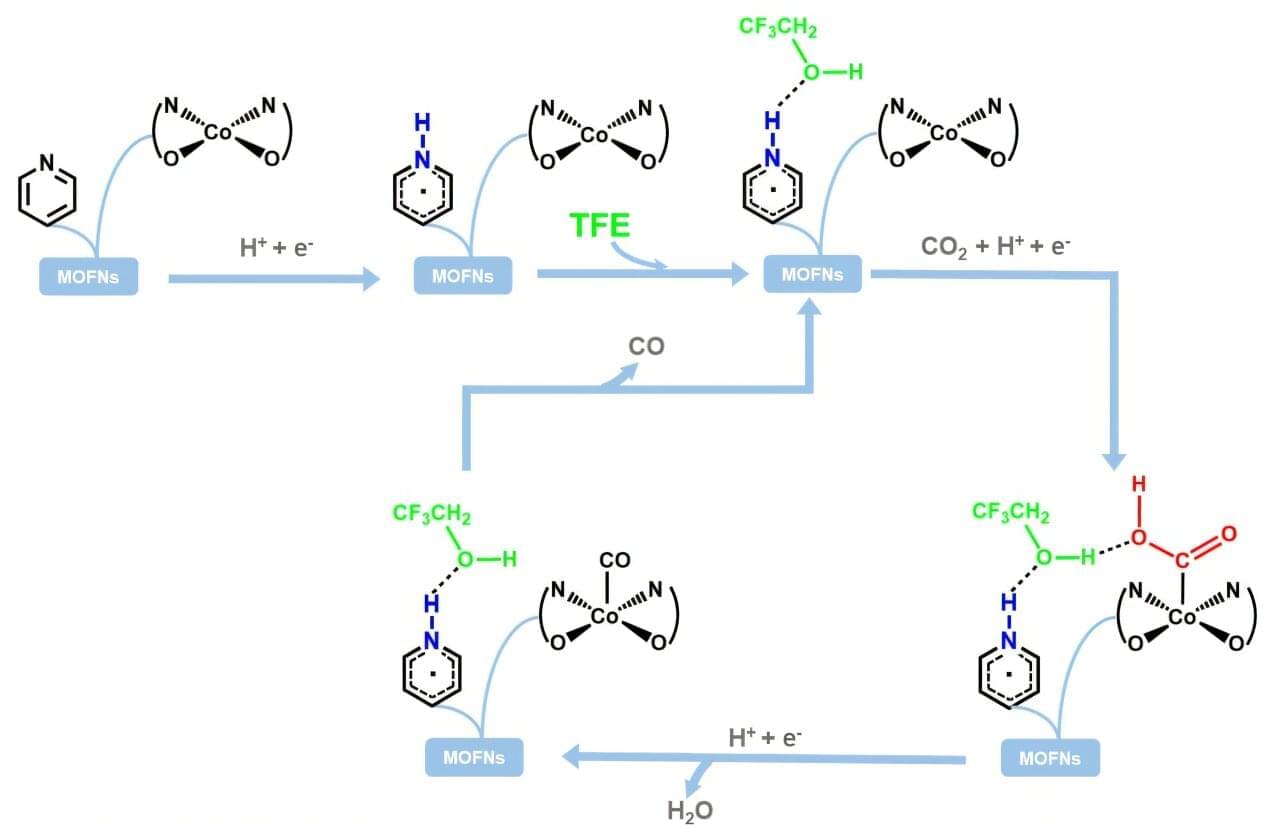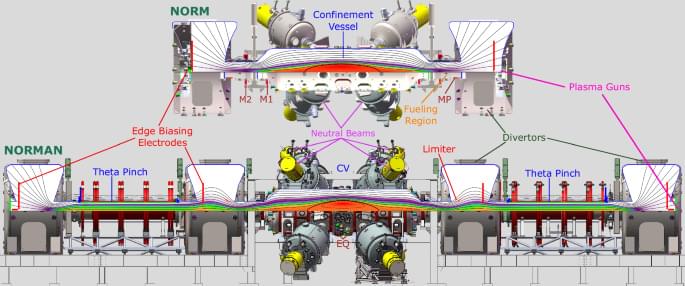Skip the fancy powders and overpriced, influencer-recommended vitamins.
Category: economics – Page 24

The US ‘must win’ the AI race with China, Andreessen Horowitz exec says
Andreessen Horowitz’s Anjney Midha argues that the US has no choice in terms of how it approaches the artificial intelligence race with China: “We must win.”
Speaking with Semafor’s Reed Albergotti at Semafor’s World Economy Summit on Wednesday, Midha, who is a general partner at the Silicon Valley venture capital firm, said that US AI companies should double down on driving growth rather than stifle innovation over concerns of potentially harmful use cases. People all over the world will choose to use American AI tools, so long as they’re the best available.
“This is why a billion people in India still use WhatsApp. It was invented in Silicon Valley,” Midha said.

Engineering a hydrogen-bonding microenvironment to boost CO₂ electroreduction
Catalytic conversion of waste CO2 into value-added fuels and chemicals offers unprecedented opportunities for both environmental protection and economic development. Electrocatalytic CO2 reduction reaction (CO2RR) has garnered significant attention for its ability to efficiently convert CO2 into clean chemical energy under mild conditions. However, the relatively high energy barrier for *COOH intermediate formation often becomes the determining step in CO2RR, significantly limiting reaction efficiency.
Inspired by enzyme catalysis, a team led by Prof. Jiang Hai-Long and Prof. Jiao Long from the University of Science and Technology of China (USTC) of the Chinese Academy of Sciences (CAS) developed a novel strategy to stabilize *COOH intermediate and enhance electrochemical CO2 reduction by constructing and modulating the hydrogen-bonding microenvironment around catalytic sites. Their work is published in the Proceedings of the National Academy of Sciences.
In this work, the team co-grafted catalytically active Co(salen) units and proximal pyridyl-substituted alkyl carboxylic acids (X-PyCn) onto Hf-based MOF nanosheets (MOFNs) via a post decoration route, affording Co&X-PyCn/MOFNs (X = o, m or p representing the ortho-, meta-, or para-position of pyridine N relative to alkyl chain; n = 1 or 3 representing the carbon atom number of alkyl chains) materials.
Tesla Major Announcements, Tariff War Draws Blood
Questions to inspire discussion.
🚕 Q: What’s the expected price range for Tesla’s upcoming Robo Taxi? A: Tesla’s Robo Taxi will enter a new price tier under $30,000, significantly increasing sales and profitability due to its lower hardware cost structure.
Tesla’s Expansion in China.
🇨🇳 Q: How is Tesla expanding its Full Self-Driving (FSD) in China? A: Tesla is offering a 30-day free trial of FSD in China, with new software version 13.2.8 for both Hardware 3 and 4, likely rolling out between end of April and early May.
🤝 Q: Why is Tesla’s relationship with China important? A: Tesla’s good relationship with China, established 5 years ago without a joint venture, is crucial for success as China benefits from learning Tesla’s FSD perspective and benchmarking against their own vehicles.
💰 Q: How will tariffs affect low-priced vehicles in the US? A: 25% tariffs on imported vehicles will apply to nearly 80% of vehicles priced under $30,000, impacting popular models like Civic and Corolla.



Generation of field-reversed configurations via neutral beam injection
The field-reversal configuration (FRC) represents a fusion device concept capable of high power density with a compact geometry. Here, the authors report on the generation and sustainment of a FRC by means of neutral beam injection in the C-2W machine at TAE technologies. This contributes towards establishing FRC as an alternative economic fusion device.
$3000 Tesla Price Target?! He Explains
Questions to inspire discussion.
Q: 🤖 What are Kirk’s predictions for Tesla’s robotaxi rollout? A: Kirk predicts at least 1 million robotaxis on the road by end of 2026, with potential for 2–5 million by end of 2027.
Q: 🦾 When does Kirk expect Tesla to sell Optimus robots to third parties? A: Kirk expects Optimus sales to third parties in the second half of 2026.
Q: 💰 What is the estimated rental price for Optimus robots? A: Kirk estimates Tesla will rent Optimus robots for $110,000-$120,000 per year.
Market and Economic Predictions.
Q: 💹 What economic environment does Kirk predict for late 2024? A: Kirk predicts a booming economic environment by Q4 2024, driven by the AI revolution and productivity increases.
Tesla FSD Just Shocked Joe Rogan
Tesla’s Full Self-Driving (FSD) technology is rapidly advancing, impressing users and analysts alike, while navigating challenges in the auto industry and broader economic factors.
Questions to inspire discussion.
Tesla’s FSD Progress.
🚗 Q: How many unsupervised miles has Tesla’s FSD driven? A: Tesla’s FSD has driven over 50,000 unsupervised miles, demonstrating significant progress in autonomous driving capabilities.
🌐 Q: What indicates Tesla’s transition to software-defined earnings? A: FSD unsupervised miles and operating domain growth are key leading indicators of Tesla’s shift towards software-defined earnings.
🤖 Q: How does Tesla’s FSD showcase AI potential in driving? A: Tesla’s FSD unsupervised capabilities, demonstrated in complex driving scenarios, serve as a proof case for artificial intelligence’s potential in autonomous driving.